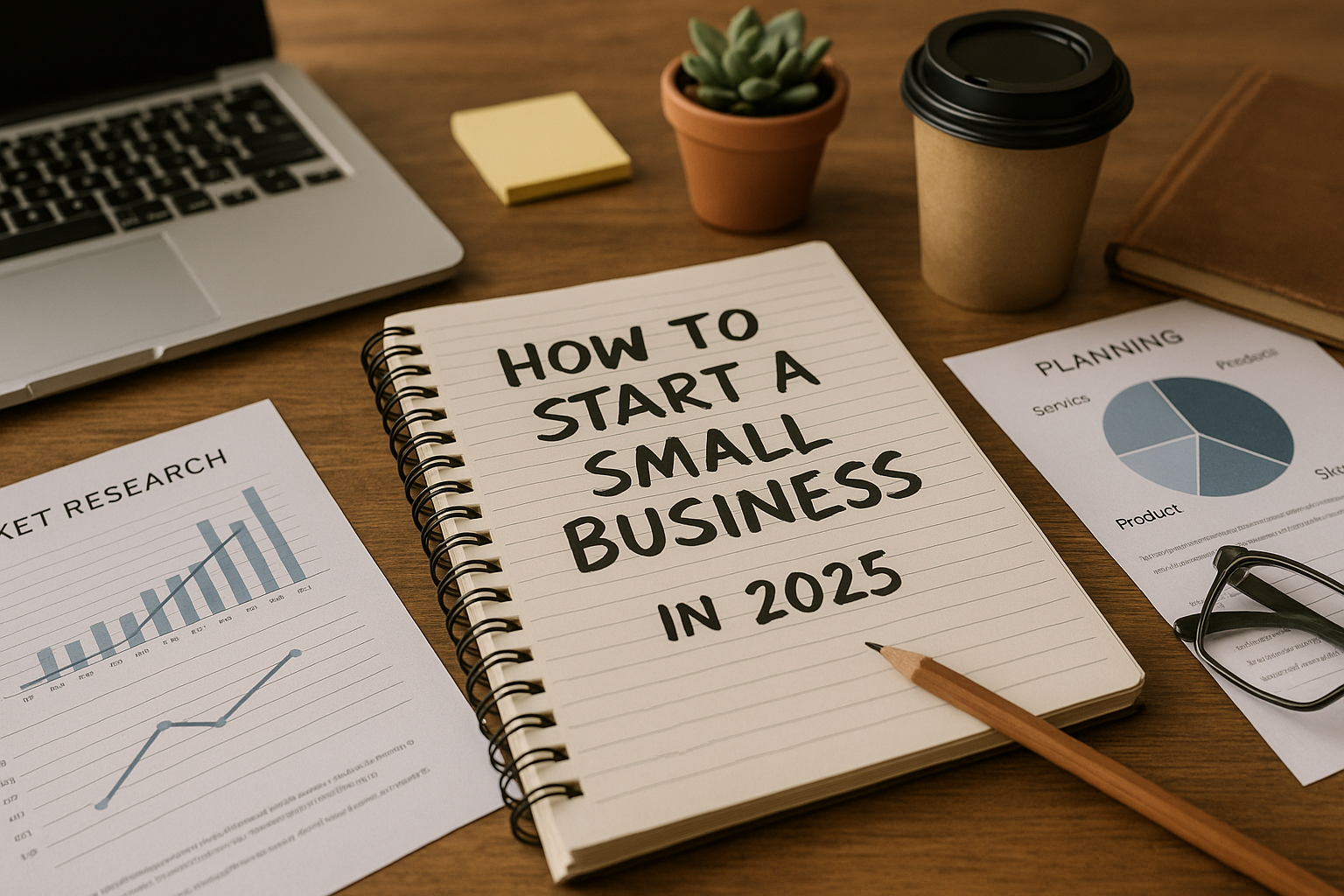Starting a small business from scratch can feel overwhelming, but with the right mindset and a clear plan, it becomes a journey full of possibilities. In 2025, entrepreneurs have access to a wide range of tools and technologies that make it easier than ever to bring an idea to life — but competition and market demands also require preparation, strategy, and resilience.
Why Start a Small Business in 2025?
With the rise of digital platforms, remote work, and niche markets, 2025 offers many advantages for new entrepreneurs:
- Lower barriers to entry with online businesses
- More accessible information and tools
- Growing demand for personalized products and services
- Supportive ecosystems, like coworking spaces and digital communities
These factors make it possible to start even with limited capital or experience — as long as you’re willing to learn and adapt.
Step 1: Define Your Business Idea
A good business idea solves a real problem or fulfills a need. Ask yourself:
- What skills or passions do you already have?
- What problems do people frequently complain about?
- What would make someone’s life easier or more enjoyable?
For example, if you’re passionate about baking and you notice a lack of high-quality vegan pastries in your area, that could be your niche.
Step 2: Research the Market
Before investing time and money, validate your idea:
- Identify your target audience: Who are they? What do they need?
- Analyze your competitors: Who’s doing something similar? What are they doing well or poorly?
- Check demand: Use tools like Google Trends, Reddit, or surveys to gauge interest.
Market research helps you avoid the trap of building something no one wants.
Step 3: Create a Simple Business Plan
You don’t need a complex 50-page plan. Just outline:
- Your business model (how you’ll make money)
- Target customers and value proposition
- Start-up costs and budget
- Marketing strategies
- Short and long-term goals
A one-page business plan is enough to guide your actions and keep you focused.
Step 4: Choose a Legal Structure
Depending on your country, your options might include:
- Sole proprietorship
- Limited liability company (LLC)
- Partnership
- Corporation
In many cases, starting as a sole proprietor or an LLC is the most flexible and affordable. Don’t forget to check local regulations and register your business name.
Step 5: Organize Your Finances
Separate your personal and business finances from the beginning:
- Open a business bank account
- Track expenses and income with software like QuickBooks or Wave
- Set a budget for start-up costs and operational expenses
- Understand your tax responsibilities
If possible, consult an accountant to avoid legal and financial headaches.
Step 6: Build a Minimum Viable Product (MVP)
Instead of waiting for perfection, launch a basic version of your product or service:
- A sample product
- A landing page
- A basic website with contact info and pricing
- A pre-order campaign
The goal is to test your concept, get feedback, and improve it.
Step 7: Promote Your Business
Marketing is essential, even in the early stages. Start with low-cost, high-impact channels:
- Social media marketing (Instagram, TikTok, Facebook)
- Word-of-mouth referrals
- Local groups and communities
- Email marketing with free tools like Mailchimp
- Google My Business if you serve a local area
The key is to show up consistently where your audience spends their time.
Step 8: Focus on Customer Experience
Happy customers bring repeat business and referrals. Make sure you:
- Respond quickly to inquiries
- Deliver what you promise
- Ask for feedback and improve
- Add personal touches when possible
Even a small business can build a loyal customer base with outstanding service.
Step 9: Learn and Adapt
Entrepreneurship is a constant learning curve. Expect mistakes, but treat them as valuable lessons:
- Track what works and what doesn’t
- Adjust your strategies regularly
- Stay updated on market trends
- Join entrepreneurial communities for support
Flexibility is one of the greatest assets of a small business.
Final Thoughts: You Don’t Need to Have It All Figured Out
The perfect time to start doesn’t exist. If you wait until you feel “ready,” you may never begin. Instead, take small steps every day. Consistent action beats overplanning.
In 2025, opportunities are everywhere for those willing to start small, think smart, and grow steadily. Start now — your future business is waiting for you.
